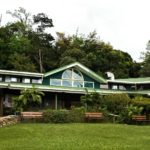
More photos of this internship may be found here.
Join the efforts of this public service non-profit to empower a community to take proactive steps towards a more sustainable future! Here, the relationships between community, environment, and tourism, are viewed from a holistic perspective. Programming centers around topics of public health, permaculture, water quality, ecology, and reforestation, all with the backdrop of sustainable ecotourism.
This internship is also available in a part-time virtual format. There is one application for all virtual placements in Costa Rica that can be accessed here.
The mission of the Monteverde Institute is to promote social, ecological and economic sustainability by integrating community initiatives with education, research and conservation.
Costa Rica, and specifically the Monteverde area, has long been a world leader in ecotourism and biodiversity conservation, and is also at the forefront of efforts related to climate change. Interns with the Monteverde Institute work with local experts involved in a variety of community and environmentally based initiatives that investigate or contribute to solutions to local issues. Students receive background information and the skill sets necessary to accomplish their tasks. Additionally, throughout the internship, the institute provides multiple levels of supervision and expertise to ensure that the intern has the most authentic and beneficial experience possible.
Students would be able to share their results with the community. All internships end with accountability to, and feedback from, the community. All completed work is documented and cataloged in our digital, publicly accessible database for use by future generations. These learning internships help the MVI promote its mission to promote social, ecological and economic sustainability by integrating community initiatives with education, research and conservation.
Some possible internship projects are listed below:
Tropical Habitat Restoration
Field Research in Conservation
Monitoring animal-plants interactions
Academic Background
Skills
Language Requirements
Estimated One-Time Expenses
Estimated Monthly Expenses
Host Site Fee Details
The host site fee from includes:
Host Site Housing
Homestays are arranged by the host organization. Interns have their own room, and should expect to share a bathroom.
This organization has a robust cultural engagement program with host families, and their homestay coordinator checks in with students regularly during their stay.
Check out this clip about host families in Monteverde!
Fall: April 15
Winter: September 15
Spring: November 15
Summer:
- Open to all majors; relevant experience in chosen industry preferred (coursework, volunteer work, and professional work experience)
- Sense of professionalism and strong work ethic.